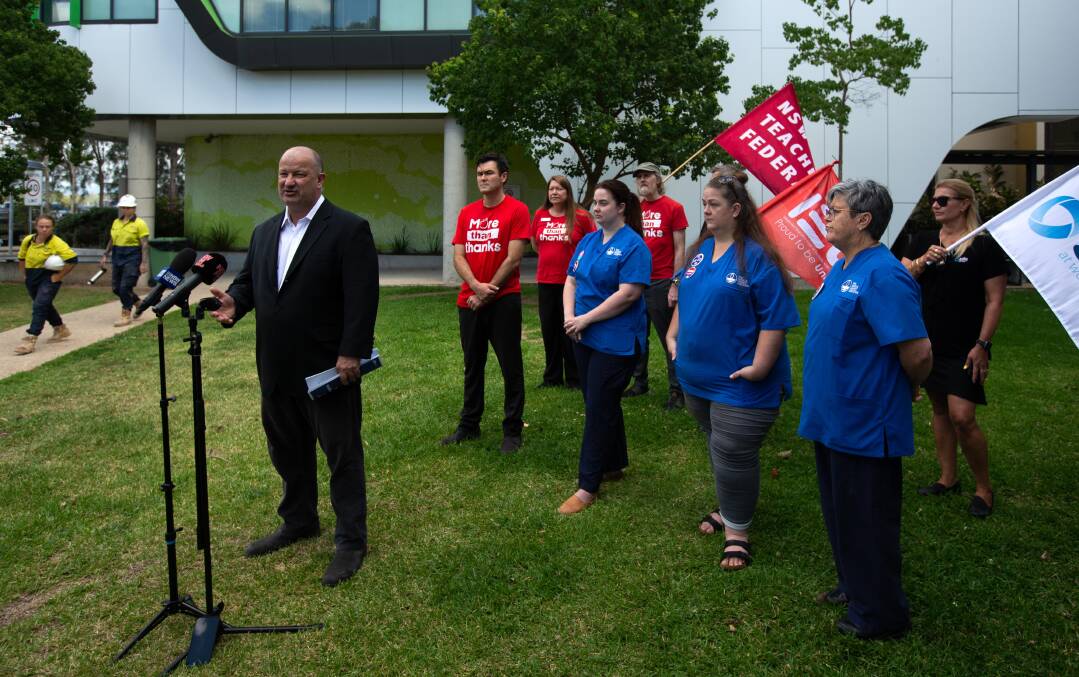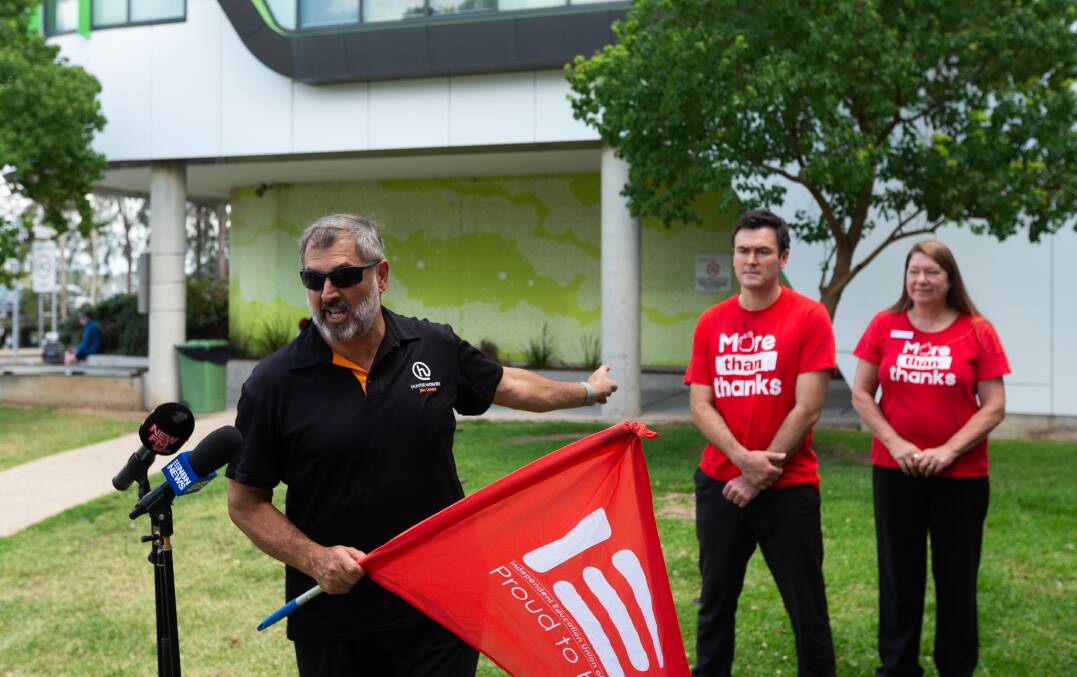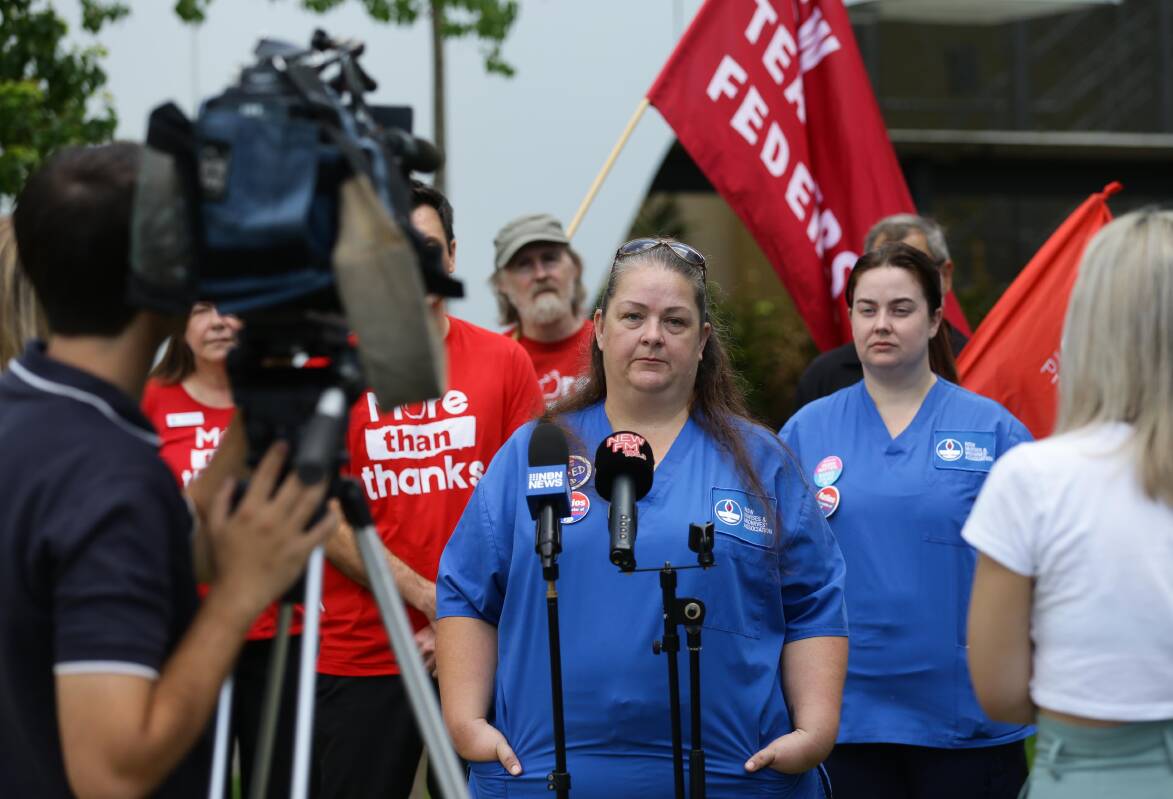
A NEW trade-union commissioned report says the public service cap is leaving essential services workers more than $10,000 behind inflation over the coming three years, with Hunter Region nurses, teachers and paramedics complaining of over-work and burnout.
The report by Griffith University's emeritus Professor David Peetz - Labour supply and essential worker shortages in key health, education and transport occupations - was commissioned by Unions NSW and launched at John Hunter Hospital on Tuesday by Unions NSW secretary Mark Morey.
Mr Morey said the shortages in the Hunter were "particularly pronounced", with nurses the third-most advertised profession in the region.
Vacancies for education professionals had trebled in the Hunter, and statewide, vacancies for "essential occupations" grew by 157 per cent in the five years to 2022, compared with 98 per cent for other occupations.
The report used Australian Bureau of Statistics (ABS) data to analyse labour markets across the state, and argued that removal of the public service wages cap would help ease shortages in female-dominated "essential services".
"There is no single solution," the report concludes. "But it is difficult to see shortages being overcome in the absence of appropriate changes to wages policy."

Teachers Federation organiser Jack Galvin Waight said that across education for the first time, "resignations are outstripping retirements", as people were made redundant despite growing enrolments.
NSW Nurses and Midwives Association assistant branch secretary Jessica Plater said the $3000 "thank you" payment from the Perrottet government in June last year was the equivalent of "a cup of coffee a day" once tax and super were taken out.
Ms Plater challenged MPs to "come and do our jobs for a day and tell us it's alright".
She and other hospital union delegates said there were so many unfilled vacancies at the John Hunter that overtime was excessive and and "rostered overtime" was used to fill shifts.
Mr Morey said the state's overtime bills were so big that it would surely be cheaper to fill the vacancies than to continue paying the huge amounts of overtime needed to keep the system working.
He said the burden on essential workers was so great that they were "leaving in droves". He said the unions involved had been seeking information from government departments as to "where the vacancies are, and they've been telling us there are no vacancies".
Professor Peetz's report said pay was a big factor in any labour shortage, and the state wage cap helped keep other wages down: "When employers say that there is a labour shortage, it is sometimes better interpreted as a shortage of wages that they are willing to offer to attract labour, given the difficulties of the job."
Hunter New England Local Health District declined to comment on the report, saying it was a matter for the NSW government. Comment was sought from the office of Premier Dominic Perrottet.

To see more stories and read today's paper download the Newcastle Herald's upgraded news app here.







